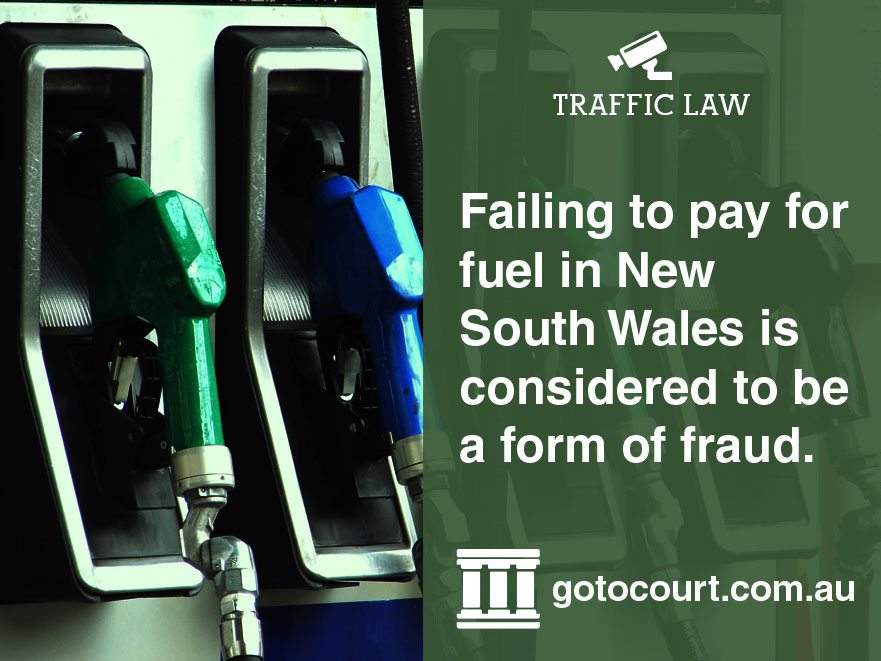Failure To Pay Offences in New South Wales
The criminal offence of fail to pay (FTP) occurs when a person puts fuel in their car at a service station and leaves without paying. The offence is contained in section 192E of the Crimes Act 1900. A person may be found guilty of this offence because they made no attempt to pay or because they attempted to pay fraudulently.

The difference between criminal and civil FTP matters
There is a distinction between someone filling up there car with petrol and driving off, compared to someone attempting to pay to only discover their transaction is declined, or they left their wallet at home. Petrol theft is classed as fraud under section 192E of the NSW Crimes Act 1900. Petrol theft may seem like larceny, but actually falls under the definition of a fraud-related offence.
The reason for this is that the owner of the petrol allows a person to place fuel in their vehicle on the presumption that it will then be paid for. By intentionally failing to pay for the fuel the promise to pay has been broken. Therefore, the owner of the fuel has been deceived.
No criminal offence is committed if a person has the intention of paying, but once they are at the counter their card declines, or they find they have left their wallet at home. In these circumstances the service station will record your personal details such as your driver’s licence number, your name, and address. You will then be able to leave with the undertaking that you will come back, and pay, for the fuel. If this occurs, and the person then fails to come back and pay, the only recourse for the service station is to commence civil action to reclaim the money. Prior to the new reporting system being introduced service station owners were reporting these events to their local police station, which would record the incident, and advise that it is a civil matter.
Penalties for FTP Offences
Intentionally not paying for fuel is a serious criminal offence, and is classed as a fraud- related offence. Fraud is defined as obtaining property belonging to another by any deception, or dishonesty. Fraud also occurs if the property was also obtained through a financial advantage, or causes any financial disadvantage to another person. The maximum penalty for a fraud offence is 10 years imprisonment.
If you require legal advice or representation in any legal matter please contact Go To Court Lawyers.



